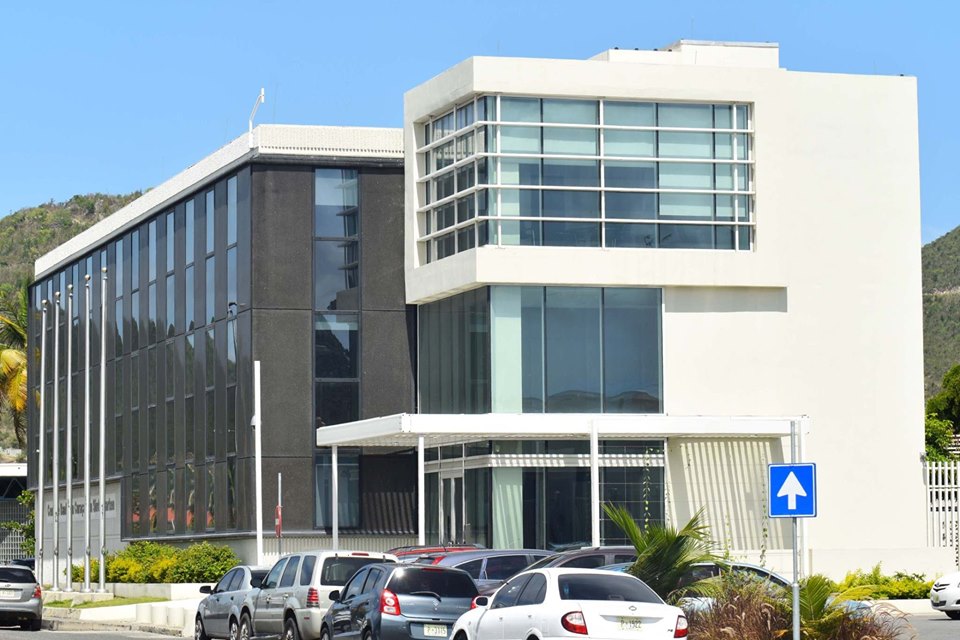Plan for deposit guarantee regulation: too little, too late

PHILIPSBURG – The Central Bank of Curacao and Sint Maarten (CBCS) has presented the governments of both countries with a draft national ordinance aimed to establish a deposit guarantee regulation. Such a measure would protect the deposits of accountholders at licensed banks. For accountholders at the Christian Kingdom Cooperative in St. Maarten that went bankrupt in 2010 and the Girobank in Curacao that measure comes too late.
The Central Bank says in a press release that it will discuss the draft ordinance with the two countries before it will be submitted for decision making and implementation, so it could still take some time before it becomes a reality.
It is currently unclear up to which amount the regulation will guarantee deposits. The Central Bank says that “international standards” will be taken into consideration to determine the amount.
The banks will have to pay a premium to the deposit guarantee fund based on their individual risk profile. The premium also aims to strengthen prudent behavior by bankers.
Why a deposit guarantee regulation is necessary appears from the history of two financial institutions, the Christian Kingdom Cooperative in St. Maarten and the Girobank in Curacao.
The Christian Kingdom Cooperative (CKC) operated a credit union in St. Maarten under the supervision of the Central Bank since 2003. On November 5, 2010, the Central Bank revoked the CKC’s license and asked the court to declare the business bankrupt.
“Unlike depositors of other financial institutions, credit union depositors have voting rights and are regarded more as owners of the institution,” CBCS said in a press release issued on October 10, 2010.
That is where the pain for the credit union’s depositors started. According to Efrich Lourens, they lost almost 1.5 million dollars in the bankruptcy and they were all left empty-handed. At the time there was no deposit guarantee regulation in place nor was there a deposit insurance system. But even the latter option would not have been able to protect the depositors, since they are considered to be owners of the credit union: “A deposit insurance system is designed to protect depositors and not owners,” the Central Bank said in its 2010 press release. “In the case of cooperative unions, an insurance system will be different from that designed for other depository institutions.”
Attempts by credit union depositors to hold the Central Bank liable for CKC’s downfall failed in court. On June 2, 2015, the court declared the trustee in the CKC-bankruptcy, attorney Jeroen Veen, inadmissible because he had claimed damages for CKC-accountholders while there were also other creditors (actually, there was one other creditor with two separate claims).
Judge Tamara Tijhuis ruled that trustees are appointed to manage a bankruptcy estate on behalf of all creditors and not on behalf of a specific group of creditors.
But even now, more than nine years after the CKC credit union was declared bankrupt, former depositors have not given up the hunt for the 1.5 million dollars they lost. Efrich Lourens told StMaartenNews.com that the Central Bank has failed to implement a deposit guarantee regulation so far. “But that does not take away that they have been liable ever since. I won the case in first instance but lost in higher courts due to a lack of funds and expert legal advice. But we, the depositors, will come back as soon as we have the cash for legal representation.”
Lourens furthermore said that the depositors hold Curacao and the Central Bank responsible. “We are preparing to take Curacao and the Central Bank once more to court for our money because it was proven that supervision was insufficient.” In the court case against both the Central Bank and St. Maarten each were blaming each other, Lourens explained StMaartenNews.com. “The judge remark was: ‘somebody has to be responsible for the money’, and for this reason we will fight to the glorious end.” Lourens concluded.
De Girobank in Curacao functioned since 2013 under a by the Central Bank imposed emergency measure. On December 10, 2019, the CBCS closed down the bank temporarily in an attempt to restore confidence among accountholders.
The Central Bank said at the time that accountholders would have access to up to 10,000 guilders of their deposits, claiming that thereby more than 90 percent of accountholders would have access to all of their money. “This is according to international deposit guarantee standards,” the bank stated.
The Girobank needs 450 million guilders ($250 million dollars) to get it back on track and CBCS interim director Bob Traa said in December that the Central Bank has already pumped 270 million guilders ($150 million dollars) in liquidity support into the Girobank, describing this as “a loss for all tax payers.”
More recently, the government of Curacao has proposed to increase the foreign exchange license fee in the monetary union to recoup the 450 million – an idea that does not sit well with its counterparts in St. Maarten.
Attempts to get rid of the problem by selling the Girobank have all failed, though former CBCS President Dr. Emsley Tromp recently revealed at a conference about economy and labor that there was a suitable buyer in 2016.
Tromp said that the agreement with this buyer is “well documented” and stored in the archives of the Central Bank. That the deal did not go through is for the account of his successors – Jerry Hasselmeyer, Alberto Romero, Leila Matroos-Lasten, Bob Traa and the bank’s current president José Jardim.
For an explanation of how the deposit guarantee regulation functions elsewhere in the kingdom see Protect Your Money.
###
Related articles:
Opinion by Hilbert Haar: “Protect your money”
Depositogarantieregeling komt voor velen te laat























